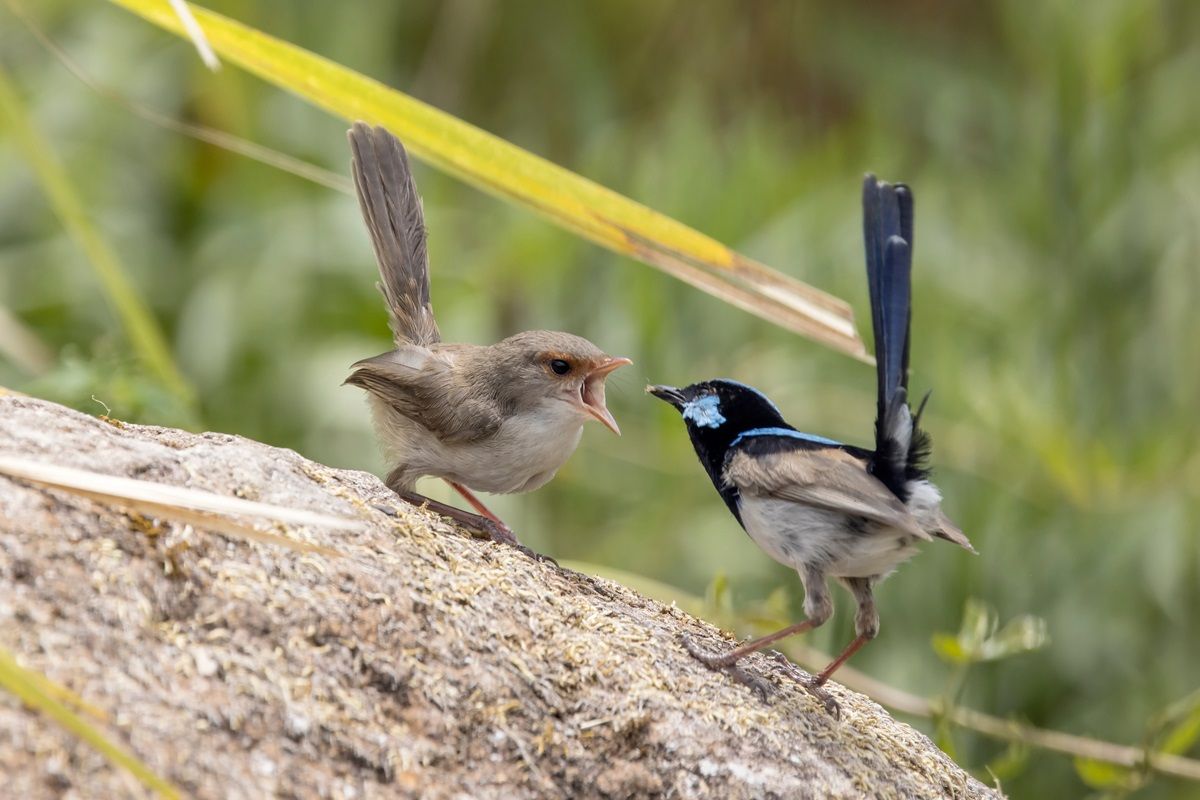D: Hey Yaël, did you know that some animals hire nannies?
Y: You're saying that some animals pay other animals to raise their kids?
D: OK, they don't actually pay other animals. But some animals--like an Australian bird called the superb fairy wren--do rely on other birds to help raise their young.
Y: That's interesting. It's called cooperative breeding, right? I guess the birds do that so the chicks will get more attention and food and have a better chance of surviving.
D: That's what you'd think . . . but it's not true. Australian researchers have found that fairy wren chicks raised by multiple helpers are no more likely to survive than chicks raised by a regular old mom and dad bird pair. In fact, chicks raised by the collective tend to be scrawnier and weaker at birth.
Y: But that doesn't make sense. I mean, why would the birds be raised this way if it doesn't help them?
D: Because it helps the mom.
Y: How?
D: Think about it. Because the mother fairy wren knows that her chicks will be looked after and fed by a flock of nannies, she invests less energy in her eggs. Cooperatively-bred eggs are typically smaller and contain less protein than other eggs.
Y: I get it. So by literally putting less into her eggs, the mother fairy wren conserves energy and lives longer and is ultimately able to produce more eggs over her life span.
D: Exactly. So cooperative breeding is an evolutionary strategy to perpetuate the species. And don't worry about those poor, scrawny chicks. The extra food they get from their nannies helps them catch up before long.










